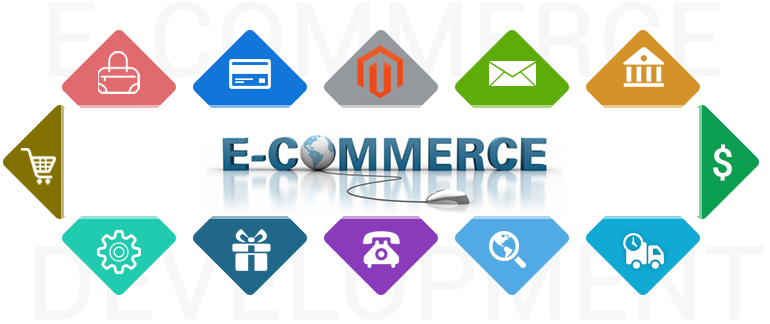The Hosting Insight
Your go-to source for the latest in web hosting news and tips.
E-commerce Development: Building Your Digital Playground
Unlock the secrets to e-commerce success! Discover how to build your digital playground and boost your online business today!
Essential Guide to E-commerce Development: Steps to Create Your Online Store
Building an online store requires a structured approach to ensure its success. The first step in your e-commerce development journey is to conduct thorough market research to understand your target audience and competitors. Utilize tools like Moz for keyword research, and SimilarWeb for competitive analysis. Next, choose the right e-commerce platform that aligns with your business needs. Popular platforms include Shopify, WooCommerce, and Magento. Each has its own strengths, so evaluate them carefully. This foundational knowledge will guide you through the steps of creating your online store.
Once you have your platform selected, focus on designing your store to enhance user experience. Incorporate intuitive navigation and ensure that your website is mobile-friendly, as a significant amount of traffic comes from mobile devices. After the design, concentrate on product listings; ensure you provide high-quality images and engaging descriptions. Additionally, integrating payment gateways is vital to facilitate secure transactions. For more best practices on e-commerce development, check resources like Shopify Blog and Neil Patel's Guide. Following these steps will create a solid foundation for your online store.

Top 10 E-commerce Development Trends You Need to Know
In the rapidly evolving landscape of digital commerce, staying ahead requires an awareness of the top e-commerce development trends. One major trend is the rise of artificial intelligence (AI), which enhances customer experiences through personalized recommendations and chatbots that provide 24/7 customer support. Additionally, the adoption of omnichannel shopping is becoming crucial as consumers expect seamless transitions between online and offline shopping experiences. Understanding these trends is essential for businesses aiming to optimize their e-commerce platforms.
Moreover, the emphasis on sustainability is reshaping e-commerce practices, with more consumers opting for eco-friendly products and brands that prioritize sustainable practices. Another significant trend is the utilization of mobile commerce, driven by the increasing use of smartphones for shopping. Companies that invest in mobile-friendly designs are likely to experience higher conversion rates. These critical e-commerce development trends highlight the importance of adapting to the changing needs and preferences of consumers in a digital-first world.
How to Choose the Right E-commerce Platform for Your Business
Choosing the right e-commerce platform for your business is a crucial decision that can significantly impact your online success. When evaluating your options, consider factors such as ease of use, scalability, payment integrations, and customer support. Some of the leading platforms include Shopify, known for its user-friendly interface, and WooCommerce, which offers extensive customization for those familiar with WordPress. Additionally, keep an eye on associated costs, as some platforms charge transaction fees or monthly subscriptions that can add up.
Another vital aspect to consider is the features that each platform offers. You’ll want to ensure it supports essential functions like inventory management, mobile responsiveness, and SEO tools. For example, platforms like BigCommerce are well-regarded for their built-in SEO capabilities, helping you optimize your online store for search engines. As you weigh your choices, create a list of must-have features and compare how each platform meets these needs, ensuring it aligns with your long-term business strategies.